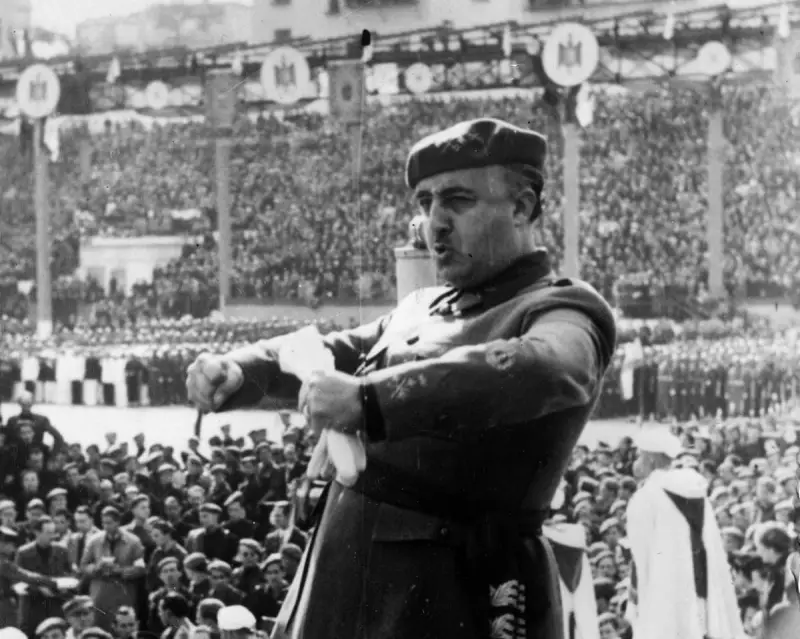
The Forgotten Horrors of Franco's Spain
Fifty years after his death, General Francisco Franco's shadow still looms over Spain. The dictator who ruled with an iron fist for nearly four decades continues to spark controversy, particularly as disturbing new research reveals that almost one in five young Spaniards now believe his regime benefited the country.
From Mediocrity to Murderous Dictator
Few would have predicted that Francisco Franco - a short, squeaky-voiced army officer with limited charisma - would become one of Europe's longest-serving dictators. Yet behind his unremarkable exterior lay a ruthlessly ambitious operator with an iron will and complete indifference to violence.
On 6 November 1939, Franco addressed a youth organisation in Madrid, captured in a photograph that now serves as a haunting reminder of his early consolidation of power. His rise demonstrates how outward mediocrity presents no barrier to those with unlimited ambition and minimal moral constraints.
Modern defenders, including newly empowered far-right groups in Spain, the UK and US, still claim Franco saved Spain from communism. This revisionist narrative conveniently ignores the brutal reality that his military insurrection against an elected government in 1936 sparked a civil war claiming half a million lives, followed by the execution of 20,000 political opponents.
A Nation Locked in Fear and Famine
Franco's Spain became a case study in oppressive governance. He implemented a policy of economic self-reliance that proved disastrous, leading to widespread famine where citizens literally begged for bread at his car window during victory tours. Even Nazi officials stationed in Spain complained about the grim reality hidden behind grandiose facades.
The dictator systematically stripped women of their rights to property, work, and even their own children, handing control to husbands and fathers. His Spain demanded 'virile' men and subservient women, all while maintaining power through state terror and a propaganda machine inspired by Goebbels.
Generations of Spaniards were educated under a heavily conservative curriculum that promoted historical amnesia about the regime's atrocities. Independent political parties, free elections, and trade unions remained banned well into the 1970s.
The Dangerous Legacy of Historical Amnesia
When Franco finally died in 1975, the predominant public emotion was fear rather than celebration. The subsequent transition to democracy under King Juan Carlos represented a remarkable transformation, yet the heroic narratives that emerged often obscured the regime's brutal reality.
Today, the problem persists in classrooms and homes across Spain. University students report that high school teachers still skirt around the subject of the dictatorship, while many Spaniards recall only the economic boom of the 1960s rather than the preceding decades of oppression and poverty.
This historical ignorance has dangerous consequences. With nearly 20% of young people now viewing Franco's rule positively, the urgent need for comprehensive education about this dark chapter becomes increasingly clear. Breaking the silence remains essential to ensuring Spain's democratic future.





